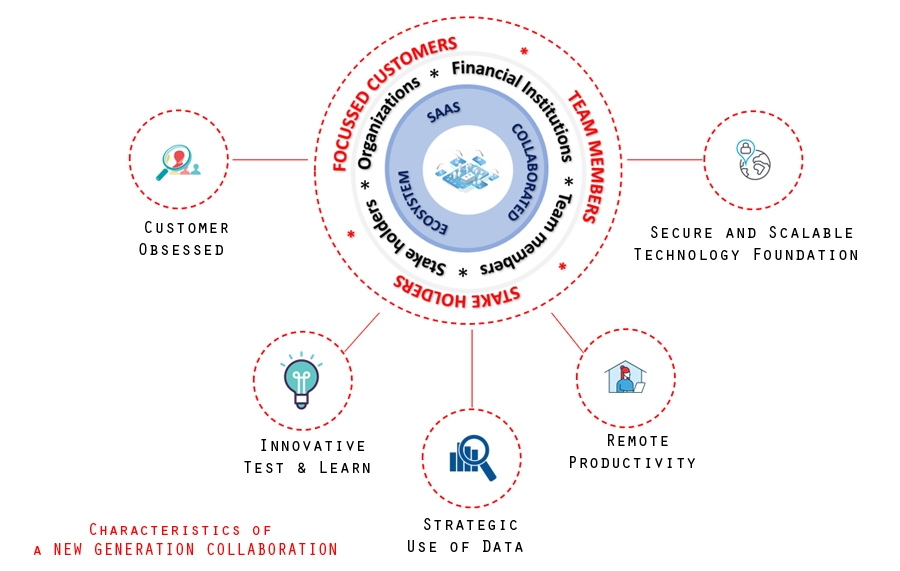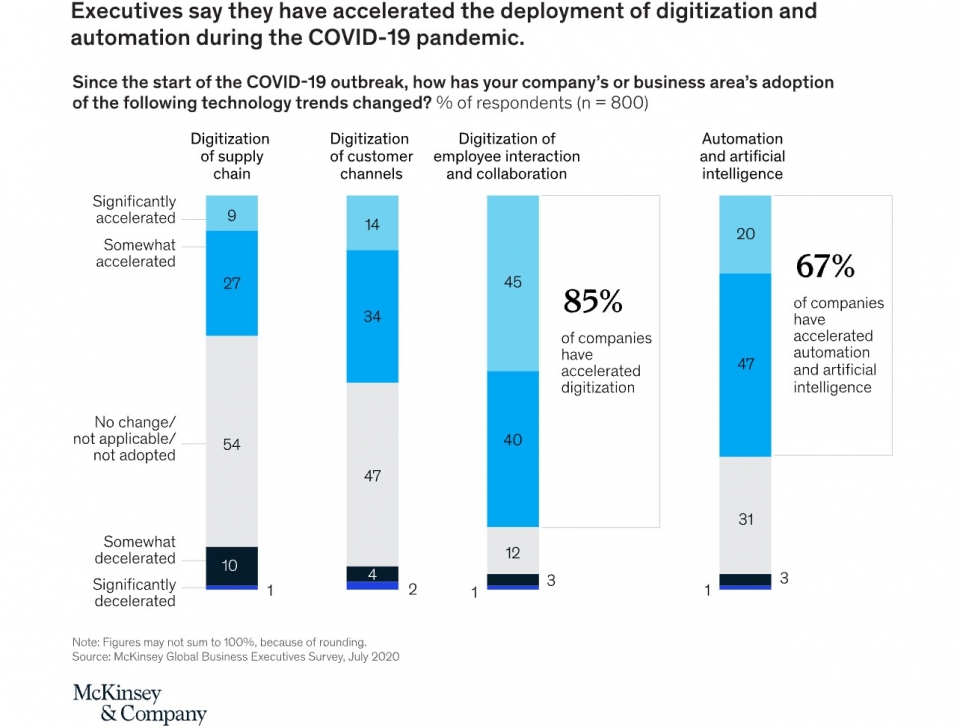14 Trends that Impact the ‘Future of Work’ - An id4org perspective.
Digital Transformations - The Future of Work in the Age of Artificial Intelligence
The ‘future of work’ seems to have arrived before time and this is definitely, unexpected. The ‘ongoing’ pandemic has changed the way people live, eat, sleep, socialize and of course, work. Most employers are, at present, trying to understand this ‘future of work’ and how to go about adapting this.

It is important to adapt to the changes happening at present. This includes virtual workplaces and remote work. The ‘tomorrow’s’ office needs to be specific designed to keep the employees well connected even if they are apart physically.
1. Digital Transformations
A business needs to ensure that the processes, be it external or internal, are digitized. It is also important that the business adapts tools or software for keeping the employees well connected.
2. Remote Work is the ‘New’ Normal
Almost 70% of the CFOs feel the transition to ‘remote’ work can make a business better in the future. There are a number of businesses that understand that the way an employee works, if a business operates from a workplace, will be absolutely different. It is important to accept the new behavior of the employees.
3. The Changing Leadership
It is important that the leadership focuses on creating workplaces considered ‘healthy’. Leaders play an important role in the building of trust in a workplace. They need to align the employees with the goals of the business.
A leader can help employees through communication that is transparent, open, and honest.
4. Sharing of Knowledge and Re-skilling
Owners of different businesses need to ensure that the job functions are evolved and also re-skill the employees, preparing them for the ‘future of work’. The employees, with the re-skilling programs, need to be able to share their knowledge with their peers through open communication. The result is successful.
5. Emergence of ‘Social’ Collaboration
This social collaboration is very important. The employees expect complete transparency and want to stay well connected. It is important that they are able to engage in company conversations. They want to share their ideas and want to be heard.
The ‘social’ collaboration tools have gained importance due to the ‘social distancing’ necessity.
6. Workplaces that are ‘Mobile’ Friendly
Workplaces that are mobile-friendly are more of a present trend. Most businesses understand that having ‘desk-less’ employees is important for the workplace to be mobile-friendly. This works out to be the only way a business can ensure the productivity and the safety of its employees.
7. Centralizing Communication Channels
Technology seems to have revolutionized ‘business communication’.
Communication, now, is much faster with the different apps for video conferencing, chat apps, and also instant messaging. Using different channels for communication in the workplace can have a negative impact and cause confusion.
It is important to adopt a centralized and streamlined communicating means. Organizations need to choose the right software solutions and tools for internal communications.
8. Meaning of Work
To bring out the best results in a workplace, an employee needs to feel they are a larger part of the organization.
Businesses, now, want to be a part of the change globally and their team needs to understand how their contribution is impacting the level of success within their organization.
9. Employee well-being and morale at the forefront.
Employers are concentrating on the well-being and morale of the employees more than ever before. Employees have expressed that the workplaces seem to have a ‘negative’ impact on them. Most businesses are looking for ways and means to ensure the well-being of their employees.
10. Gig economy and self-employment
At present, employers are offering flexible working conditions to their employees. This helps the employee to control the work-life balance.
11. Soft skills v/s hard skills
Employees will be spending more of their time on activities that cannot be handled by machines. This includes sharing their expertise, managing people, and communication. Advanced cognitive capabilities, emotional and social skills, and creative and logical reasoning seem to be in demand.
12. Employee activism on the rise
Employee activism is on the rise as the newer generations are taking a more outspoken approach in the workplace. They are more inclined to protesting than taking a passive role.
It is important that the employer understands that these protests can damage the reputation of their business. A business needs to make an effort to improve the ‘trust’ factor in the workplace, encourage the employees to live with the value of the company, support transparency, and align the external and internal communications.
13. Innovation, Agility, and Management
Businesses need to welcome innovation and be flexible while managing any crisis, such as COVID-19. The productivity of the employees and the business can be affected if the organization is unable to adapt to the new changes.
14. Internal Communication Importance
The way in which employees presently communicate is more important due to the remote work environment. Organizations must provide their employees with the most efficient and productive platform for the future of their success.
The "Future of Work" will depend on an organization's willingness to adapt to newer technology, be flexible, trusting and respectful when contemplating employee suggestions.
This blog post is an extension of a discussion on the “Future of Work”. id4Org is a pioneer platform with the tools you need to start your business.















